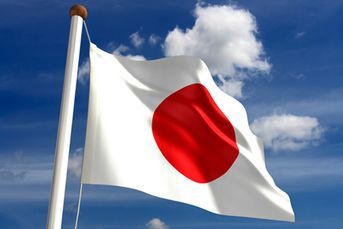John Dorfman: Why Goldman Sachs is now a ‘buy’
Now that the Securities and Exchange Commission has unofficially declared Goldman Sachs Group Inc. to be the big bad wolf of the 2007-2009 financial crisis, what should investors do?
Now that the Securities and Exchange Commission has unofficially declared Goldman Sachs Group Inc. to be the big bad wolf of the 2007-2009 financial crisis, what should investors do?
I believe they should buy Goldman Sachs stock.
I like some other financial companies too, but let’s start with the wolf. With a market value of about $86 billion, New York-based Goldman is the largest U.S. securities firm, and the one currently occupying the regulatory hot seat. Several executives from the firm will testify tomorrow before the Senate Permanent Subcommittee on Investigations.
Advisers’ view: Time to buy or sell GS stock?
I don’t know whether Goldman will prevail if the SEC’s case alleging fraud goes to trial. If I were a lawyer, I could argue either side.
As an SEC attorney, I would claim that Goldman created and sold to the public a security designed to fail. This was a synthetic collateralized debt obligation whose component investments were allegedly chosen by hedge-fund manager John Paulson because he wanted to bet against them.
As Goldman’s defense counsel, I would say that Paulson’s opinion of those underlying investments doesn’t matter. What does matter is whether the risks were properly disclosed, and they were.
I will watch the trial with great interest, assuming no out-of-court settlement is reached first. But as an investor, I maintain that it doesn’t matter who wins.
A guilty verdict might nick Goldman’s reputation. But the firm could withstand the hit, I believe. When the Exxon Valdez had a colossal oil spill in 1989, it harmed the reputation of Exxon (now Exxon Mobil Corp.) That didn’t stop Exxon shares from posting a total return of about 1,000 percent in the 21 years following the accident.
If it loses, Goldman might have to pay a substantial fine. But many firms, from Microsoft Corp. to the big tobacco companies, have taken legal blows and come back to perform well.
Consider Goldman’s record. Its revenue has climbed steadily: $4.5 billion in 1995, $16.6 billion in 2000, $25.2 billion in 2005 and $45.2 billion last year.
Profits have also moved up smartly: $1.3 billion in 1995, $3.1 billion in 2000, $5.6 billion in 2005 and $13.4 billion in 2009.
What earnings multiple would you expect to pay for this sort of growth? I think that in normal times many investors would be willing to pay 30 times earnings for it, or more.
Yet today, nervous investors value Goldman shares at only six times earnings and 1.5 times revenue. This seems like a bargain to me.
At about $159, Goldman shares have declined more than a third from their 2007 high of about $247. Investors who don’t own the stock can thank the recession and bear market of 2007 to 2009, plus the SEC’s fraud complaint, for this buying opportunity.
To be sure, there are things to worry about. My biggest concern is Goldman’s debt, which is 823 percent of stockholders equity — way beyond my normal limit of 100 percent.
High debt is commonplace for financial stocks, especially brokerage firms. That doesn’t mean it isn’t dangerous. Just ask people who worked for Lehman Brothers Holdings Inc. before it went under, or Bear Stearns Cos. before it almost failed and was forced into a shotgun wedding with JPMorgan Chase & Co.
A second worry, of course, is the SEC’s lawsuit. Finally, some of Goldman’s profit centers — high-frequency trading, proprietary trading and collateralized debt obligations — are likely to be curbed by proposed financial reform legislation.
My take on all this is that Goldman has assembled a pool of creative, talented and driven people who will always find a way to make money. Not every year will be a blockbuster, but many years will. If your time horizon is two years or longer, I think these shares are a good investment. I bought some last week.
I don’t care for the stock of rival Morgan Stanley. It sells for 46 times earnings, and the debt-to-equity ratio of 1,391 percent is considerably higher than Goldman’s.
Charles Schwab Corp. also leaves me cold. At 30 times earnings and more than five times revenue, the San Francisco- based retail-oriented firm is too expensive.
More to my liking is Raymond James Financial Inc. of St. Petersburg, Florida, which has brokerage, investment management and banking operations. I appreciate its debt-to-equity ratio of 64 percent, svelte for a brokerage firm. And I can tolerate its price-earnings ratio of 20, because I figure that earnings are temporarily depressed.
Raymond James is trading at around $31. I wouldn’t put in fresh money at that price, but suggest buying if the stock drops to $27 or less.
Piper Jaffray Cos., with headquarters in Minneapolis, does institutional brokerage and investment banking. It has a debt- to-equity ratio of 85 percent, which is good for a brokerage firm. At 18 times earnings and 1.2 times revenue, the stock may be fairly priced for the moment at about $38. However, analysts see better earnings ahead.
Disclosure note: I own Goldman Sachs, Raymond James and Piper Jaffray shares personally and for clients. I have no long or short positions in the other stocks discussed in this week’s column.
(John Dorfman, chairman of Thunderstorm Capital in Boston, is a columnist for Bloomberg News. The opinions expressed are his own. His firm or clients may own or trade securities discussed in this column.)
Learn more about reprints and licensing for this article.




